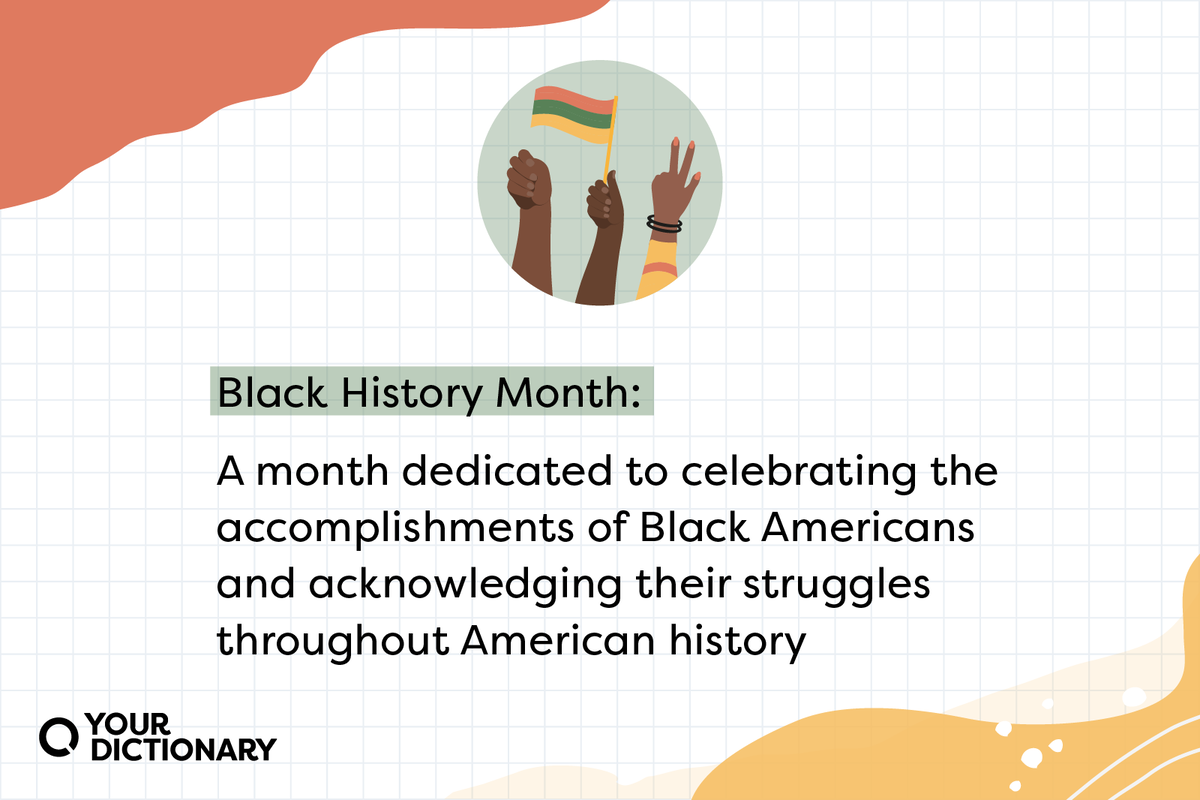
Black History Month, also known as African American History Month, celebrates the accomplishments of Black Americans and acknowledges the struggles of the Black community throughout American history. While learning about Black history shouldn’t be confined to one month, Black History Month is a great opportunity to learn about Black leaders and innovators.
When Did Black History Month Start?
Black History Month began in 1926, but it didn’t actually start off as an entire month. Dr. Carter G. Woodson introduced the first Negro History Week through the Association for the Study of Negro Life and History, with the intention to honor Black figures in American history. Negro History Week was officially recognized in the United States half a century later, when President Gerald Ford first announced its observance in 1976.
With the growth of the civil rights movement has come a healthy awareness on the part of all of us of achievements that have too long been obscured and unsung. Emphasis on these achievements in our schools and colleges and in daily community life places in timely perspective the benefits of working together as brothers and sisters regardless of race, religion or national origin for the general well-being of all our society.
In this spirit, I urge my fellow citizens to be mindful of the valuable message conveyed to us during the celebration of this week.—Gerald Ford, Message on the Observance of Black History Week
Ten years later, Congress designated February as National Black (Afro-American) History Month with Public Law 99-244. Proclaiming February as Black History Month has since become a regular tradition for American presidents.

25+ Black History Month Facts to Share and Celebrate
What Is the Theme of Black History Month?
In addition to recognizing Black History Month, the Association for the Study of African American Life and History (ASALH) has also announced a specific theme for each year’s celebration. Notable Black History Month themes from the past include:
- 1976 - America for All Americans
- 1981 - Black History: Role Model for Youth
- 1990 - Seventy-Five Years of Scholarly Excellence: A Homage to Our Forebearers
- 1997 - African Americans and Civil Rights; a Reprisal
- 2001 - Creating and Defining the African American Community: Family, Church Politics and Culture
- 2010 - The History of Black Economic Empowerment
- 2015 - A Century of Black Life, History, and Culture
- 2020 - African Americans and the Vote
- 2023 - Black Resistance
Why Is Black History Month in February?
Black History Month always takes place in February for a specific reason: It’s the birth month of Abraham Lincoln (February 12, 1809) and Frederick Douglass (celebrated February 14, 1818). Both men played integral roles in the 19th-century abolitionist movement that freed Black American slaves.
Since the creation of Black History Month, many more influential Black Americans join Lincoln and Douglass to celebrate their birthdays in February. Langston Hughes (February 1) and Rosa Parks (February 4) both have February birthdays as well. However, Black History Month doesn’t only celebrate Black Americans who were born in February — it pays tribute to important Black Americans throughout history.
Do You Capitalize “Black History Month”?
Like all holidays, Black History Month is a proper noun, so it should be capitalized.
- We celebrate Black History Month by learning more about Black doctors, scientists, writers, and musicians.
- Have you made plans for Black History Month?
- This Black History Month, I’m going to read Letter from Birmingham Jail.
If you’re talking about Black history by itself, Black is capitalized (per AP style), but the common noun history is not capitalized.
- It’s important to learn about Black history even after February is over.
- Many leaders from Black history believed in nonviolent resistance.
- You don’t need to be a scholar of Black history to know that Dr. Daniel Hale Williams performed the first successful open-heart surgery.
Quotes To Keep in Mind This Black History Month
There are many speeches and works of literature to choose from when it comes to finding the perfect quotes for Black History Month.
- “Struggle is a never-ending process. Freedom is never really won; you earn it and win it in every generation.” —Coretta Scott King
- "The cost of liberty is less than the price of repression." —W.E.B. Du Bois
- “It is not light that we need, but fire; it is not the gentle shower, but thunder. We need the storm, the whirlwind, and the earthquake.” —Frederick Douglass
- “I have the audacity to believe that peoples everywhere can have three meals a day for their bodies, education and culture for their minds, and dignity, equality, and freedom for their spirits.” —Martin Luther King, Jr.
- “For me, the history of the place of Black people in this country is so varied, complex, and beautiful. And impactful.” —Toni Morrison
- “I had no idea that history was being made. I was just tired of giving up.” —Rosa Parks
- “Won't it be wonderful when black history and native American history and Jewish history and all of U.S. history is taught from one book. Just U.S. history. I am trying to work myself out of a job by being so active extolling the virtues of African Americans." —Maya Angelou
- “[Black History Month] is about the lived, shared experience of all African Americans, high and low, famous and obscure, and how those experiences have shaped and challenged and ultimately strengthened America. It’s about taking an unvarnished look at the past so we can create a better future. It’s a reminder of where we as a country have been so that we know where we need to go.” —Barack Obama
- “We will all, at some point, encounter hurdles to gaining access and entry, moving up and conquering self-doubt; but on the other side is the capacity to own opportunity and tell our own story.” —Stacey Abrams
- “I am no longer accepting the things I cannot change. I am changing the things I cannot accept.” —Angela Davis
- “One cannot, at once, claim to be superhuman and then plead mortal error. I propose to take our countrymen’s claims of American exceptionalism seriously, which is to say I propose subjecting our country to an exceptional moral standard.” —Ta-Nehisi Coates
What Is Black Futures Month?
While Black History Month is about celebrating the past, Black Futures Month is about looking to the future of the Black community. If you’d like to celebrate them both, good news — they both take place in February.
Black Futures Month focuses on the accomplishments and contributions of Black Americans in the present day. It sets goals toward an equal and equitable future by addressing issues that may hold society back today.
During Black Futures Month, you can celebrate Black joy (the freedom and happiness that comes from self-expression), Black girl magic (the affirmation of Black beauty and influence), and Black excellence (the celebration of Black business, economic, and career success).
Celebrating the Black Community All Year Long
February isn’t the only time that Black history appears on the calendar. You can find opportunities to celebrate Black legacies all year long.
- Martin Luther King, Jr. Day (third Monday in January) - celebrates the life and legacy of Dr. Martin Luther King, Jr.
- Loving Day (June 12) - commemorates the day that Richard and Mildred Loving won their case challenging laws barring interracial marriage in the United States
- African American Music Appreciation Month (month of June) - celebrates the music of the Black community
- Juneteenth, or Black Independence Day (June 19th) - commemorates the last official day of slavery in the United States: June 19th, 1865
- Black Poetry Day (October 17) - brings attention to Black poets and writers
- Rosa Parks Day (December 1) - observes the day that Rosa Parks was arrested for not giving up her seat on a Montgomery bus; also observed on February 4, Rosa Parks’ birthday
- Kwanzaa (December 26 - January 1) - observes seven principles that reinforce important values in the Black community